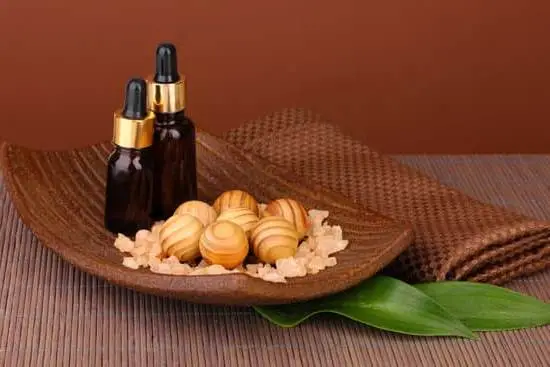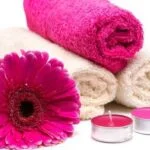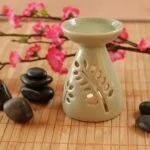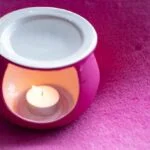Are you wondering, “Can I use essential oils in an aromatherapy diffuser?” Aromatherapy is a holistic healing treatment that uses natural plant extracts to promote health and well-being. Essential oils are the highly concentrated version of the natural oils found in plants, and they are used for a variety of purposes, including aromatherapy. In this article, we will explore the world of aromatherapy and essential oils, focusing on how they can be used in aromatherapy diffusers.
Aromatherapy has been used for centuries as a traditional practice to improve physical, emotional, and mental health. By inhaling the aroma of essential oils through techniques such as diffusion, individuals may experience various therapeutic benefits. Aromatherapy diffusers are devices that disperse essential oil molecules into the air, creating a fragrant and soothing atmosphere.
There are several types of aromatherapy diffusers available on the market, each with its own unique way of dispersing essential oils. Understanding how these diffusers work and their specific benefits can help you choose the right one for your needs.
Additionally, it’s important to consider certain factors before using essential oils in an aromatherapy diffuser to ensure safety and effectiveness. In the following sections, we will delve into these topics in more detail to help you make informed decisions when incorporating essential oils into your aromatherapy practice.
Understanding Aromatherapy Diffusers and How They Work
Aromatherapy diffusers are a popular way to enjoy the benefits of essential oils and create a relaxing atmosphere in your home or workplace. These devices work by dispersing tiny oil particles into the air, allowing you to inhale the aromatic and therapeutic properties of the oils. There are several types of diffusers available, each with its unique method of operation and benefits.
The most common types of aromatherapy diffusers include:
- Nebulizing Diffusers: These diffusers use pressurized air to break down essential oils into tiny particles, which are then released into the air in a fine mist.
- Ultrasonic Diffusers: These diffusers use ultrasonic vibrations to disperse essential oils in the form of a cool mist. They also act as humidifiers, adding moisture to the air.
- Heat Diffusers: These diffusers use heat to evaporate essential oils into the air. They are usually simple and inexpensive but may alter the chemical composition of some oils.
When choosing an aromatherapy diffuser, consider factors such as room size, maintenance requirements, and personal preferences. It’s important to select a diffuser that suits your needs and lifestyle so that you can fully enjoy the benefits of using essential oils in your space. Before using essential oils in an aromatherapy diffuser, always read the manufacturer’s instructions and guidelines for proper usage and maintenance.
Can I use essential oils in an aromatherapy diffuser? Absolutely. In fact, using high-quality essential oils in a properly functioning aromatherapy diffuser is one of the best ways to experience their therapeutic benefits. Just make sure to follow safety guidelines and choose the right type of diffuser for your needs.
Types of Aromatherapy Diffusers and Their Benefits
Aromatherapy diffusers come in various types, each with its own set of benefits and drawbacks. Understanding the different types of diffusers can help you make an informed decision about which one is best for you.
Ultrasonic Diffusers
One popular type of aromatherapy diffuser is the ultrasonic diffuser. These devices use water and ultrasonic waves to disperse essential oils into the air as a fine mist. They are known for their ability to effectively distribute essential oil particles throughout a room, making them a great choice for larger spaces. Additionally, ultrasonic diffusers also act as humidifiers, adding moisture to the air which can be particularly beneficial during the dry winter months.
Reed Diffusers
Reed diffusers are another type of aromatherapy diffuser that use rattan reeds to absorb and diffuse essential oils. While they are not as effective in dispersing oils throughout a room compared to other types of diffusers, they are perfect for smaller spaces or areas where electricity may not be readily accessible. They also require minimal maintenance and are often appreciated for their aesthetic appeal.
Nebulizing Diffusers
Nebulizing diffusers are considered one of the most powerful types of aromatherapy diffusers because they do not require water or heat to disperse the essential oils. Instead, they break down the oils into a fine mist using pressurized air, resulting in a more concentrated scent that is quickly spread throughout the room. This makes nebulizing diffusers ideal for therapeutic purposes and for those seeking maximum health benefits from essential oils.
Choosing the right type of aromatherapy diffuser depends on your personal preferences and needs. Whether you prioritize efficiency, aesthetics, or therapeutic benefits, there is a type of diffuser that can cater to your specific requirements.
Factors to Consider Before Using Essential Oils in a Aromatherapy Diffuser
Quality of Essential Oils
When using essential oils in an aromatherapy diffuser, it is important to consider the quality of the essential oils. High-quality, pure essential oils are essential for achieving the desired therapeutic benefits. Look for oils that are labeled as 100% pure and natural, and preferably organic. Lower quality or synthetic oils may not provide the same therapeutic effects and could even contain harmful chemicals.
Sensitivity and Allergies
Before using essential oils in a aromatherapy diffuser, it is crucial to consider any sensitivities or allergies you or those around you may have. Some individuals may be sensitive to certain essential oils, which can cause skin irritation, respiratory issues, or allergic reactions. It’s important to perform a patch test before using a new essential oil and to be mindful of others who may be sharing the space with you.
Pets and Children
If you have pets or young children in your home, it is important to take extra precautions when using essential oils in a diffuser. Some essential oils can be toxic to pets if ingested or inhaled, and certain oils can also be too strong for young children. Always research which essential oils are safe to use around pets and children, and consider diffusing oils in areas where they cannot easily access.
Considering these factors before using essential oils in a aromatherapy diffuser can help ensure a safe and enjoyable experience while reaping the incredible benefits of aromatherapy.
Best Essential Oils for Aromatherapy Diffusers and Their Properties
Aromatherapy diffusers are a popular way to enjoy the benefits of essential oils. However, not all essential oils are suitable for use in a diffuser. When choosing the best essential oils for aromatherapy diffusers, it’s important to consider the properties of each oil and how they can benefit your health and well-being.
Here are some of the best essential oils for aromatherapy diffusers and their properties:
1. Lavender: Known for its calming and relaxing properties, lavender essential oil is a great choice for promoting restful sleep and reducing stress and anxiety.
2. Peppermint: With its invigorating and refreshing scent, peppermint essential oil can help boost energy levels, improve focus and concentration, and alleviate symptoms of headache or nausea.
3. Eucalyptus: This essential oil is renowned for its respiratory benefits, making it an excellent choice for clearing congestion, relieving sinus issues, and promoting easier breathing.
4. Tea Tree: With its strong antimicrobial properties, tea tree essential oil can help purify the air and support immune function, making it beneficial during times of illness or to prevent the spread of airborne pathogens.
5. Lemon: The bright and uplifting scent of lemon essential oil can help uplift mood, improve mental clarity, and provide a refreshing aroma in any space.
When using these essential oils in an aromatherapy diffuser, be sure to follow the manufacturer’s recommendations for dilution ratios and usage instructions. Always start with a small amount of oil to gauge your sensitivity or any adverse reactions before increasing the quantity. Additionally, it’s important to clean your diffuser regularly to prevent buildup of residue that can affect the performance of the device.
By selecting the best essential oils for your aromatherapy diffuser based on their properties and benefits, you can create a personalized aromatic experience that supports your overall well-being.
How to Use Essential Oils in Aromatherapy Diffusers Safely and Effectively
Using essential oils in aromatherapy diffusers can be a great way to experience the therapeutic benefits of these natural remedies. However, it is important to use them safely and effectively to maximize their potential without causing any harm. Here are some guidelines for using essential oils in aromatherapy diffusers:
1. Dilution: Before adding essential oils to your diffuser, it is important to dilute them with water or a carrier oil. This helps to disperse the oils more evenly and prevents them from evaporating too quickly.
2. Start Slowly: When using a new essential oil, start with just a few drops in your diffuser. You can always add more later if needed. It’s better to begin with a lower concentration and then adjust as you become familiar with the strength of the scent.
3. Cleaning: Regularly clean your aromatherapy diffuser to prevent the buildup of residue from previous uses. This will ensure that the essential oils are being dispersed effectively and that no impurities are affecting their potency.
In addition, it is crucial to pay attention to any potential allergies or sensitivities to certain essential oils when using them in a diffuser. Always follow the manufacturer’s instructions for your specific diffuser model, as different types may have different requirements for use.
| Essential Oil | Therapeutic Properties |
|---|---|
| Lavender | Calming, Relaxing |
| Eucalyptus | Decongestant, Antiseptic |
| Peppermint | Invigorating, Refreshing |
Common Mistakes to Avoid When Using Essential Oils in Aromatherapy Diffusers
When using essential oils in aromatherapy diffusers, it is important to be aware of common mistakes that can affect the effectiveness and safety of the practice. One common mistake to avoid is using low-quality essential oils. Low-quality oils may not have the same therapeutic benefits as high-quality, pure essential oils. It is important to source your essential oils from reputable suppliers to ensure their purity and quality.
Another mistake to avoid is using too much essential oil in the diffuser. While it can be tempting to add more oil for a stronger scent, overloading the diffuser with essential oil can actually be overwhelming and may cause adverse reactions in some individuals. It is best to follow the manufacturer’s guidelines for the recommended amount of oil to use in your specific diffuser.
In addition, one should be mindful of the choice of essential oils when using them in a aromatherapy diffuser. Some essential oils are not safe for use around certain individuals, such as pregnant women, children, or pets. It is important to research and understand which oils are safe for everyone in your household before using them in your diffuser.
| Mistake | Effect |
|---|---|
| Using low-quality essential oils | May not have therapeutic benefits |
| Using too much essential oil | Can be overwhelming and cause adverse reactions |
| Choosing unsafe essential oils | Can be harmful to certain individuals such as pregnant women, children, or pets |
Conclusion
In conclusion, there is no denying the numerous healing benefits that can be derived from using essential oils in aromatherapy diffusers. From promoting relaxation and reducing stress to alleviating headaches and improving sleep quality, the use of essential oils in diffusers has become increasingly popular for those seeking natural and holistic remedies for various health concerns.
However, it is important to note that while essential oils offer a myriad of therapeutic properties, caution must be exercised when using them in aromatherapy diffusers. Factors such as the type of diffuser used, the potency and purity of the essential oils, as well as individual sensitivities should all be taken into account before incorporating them into a regular aromatherapy practice.
Always remember to dilute essential oils as needed and to consult with a qualified aromatherapist or healthcare professional if you are unsure about their proper usage.
Ultimately, when used safely and effectively, essential oils in aromatherapy diffusers can contribute to overall well-being and enhance one’s physical, emotional, and mental state. So go ahead and explore the world of aromatherapy with confidence, knowing that you <can i use essential oils in a aromatherapy diffuser choose from a wide variety of essential oils that cater to your specific needs and preferences. Just remember to approach their usage with mindfulness and respect for their potent properties.
Frequently Asked Questions
Can You Use Regular Essential Oils in a Diffuser?
Yes, you can use regular essential oils in a diffuser. However, it’s important to check the manufacturer’s guidelines for your specific diffuser to ensure that it is safe to use all types of essential oils.
What Essential Oils Should Not Be Used in a Diffuser?
There are certain essential oils that should not be used in a diffuser due to potential toxicity or irritant effects. Oils such as wintergreen, eucalyptus, and rosemary should be used with caution or avoided altogether when using a diffuser.
Can You Put Essential Oils in Aromatherapy?
Essential oils are commonly used in aromatherapy due to their therapeutic properties. They can be used in various ways in aromatherapy, including through inhalation, topical application, and even ingestion under the guidance of a trained professional. Always consult a qualified aromatherapist before using essential oils in aromatherapy to ensure safe and effective usage.

Are you looking for a natural way to improve your health and wellbeing?
If so, aromatherapy may be the answer for you.






